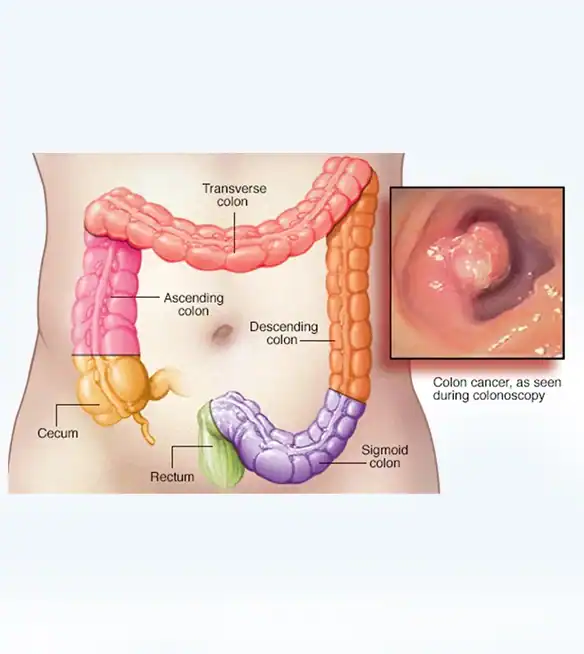Colorectal cancer is a type of cancer that begins in the colon or rectal and then starts growing uncontrollably to other parts of the body. It is situated in the lower part of your digestive system also called ‘the gastrointestinal system’. In colorectal cancer, you’ll notice changes in bowel movements and experience certain symptoms like diarrhea, constipation, or narrowing of the stool. Sunrise Oncology Centre is often regarded as the best rectal cancer treatment centres in Mumbai.

Colorectal cancer starts growing in the inner lining of the colon and rectal. This cancer growth is called a ‘polyp’. It then slowly starts spreading to different organs such as the lungs, bones, liver, lymph nodes, brain, or spinal cord. The chances of polyp turning into cancer depend on some circumstances such as
The causes of colon or rectal cancer are mainly related to the genetic environment or mutations from hereditary syndromes. According to WHO(World Health Organization) statistics, 70% of Colorectal Cancer happen without any clear reason. However, it also happens due to certain risk factors. The common risk factors are
The symptoms of colorectal cancer are difficult to determine at the early stage of cancer. However, if you are experiencing an infection, irritable bowel syndrome, or haemorrhoids then you need to seek adequate treatment on time. If the above symptoms persist for long enough, talk to Sunrise Oncology Center doctors for recommended medical tests to determine the accurate cause. The list of symptoms you should look out for are:
Colorectal cancer shows no major signs in the early stages except for some mild complications of infection in the bowel. Therefore, early detection of colorectal cancer can help in treating cancer effectively by stopping its growth in different organs of the body